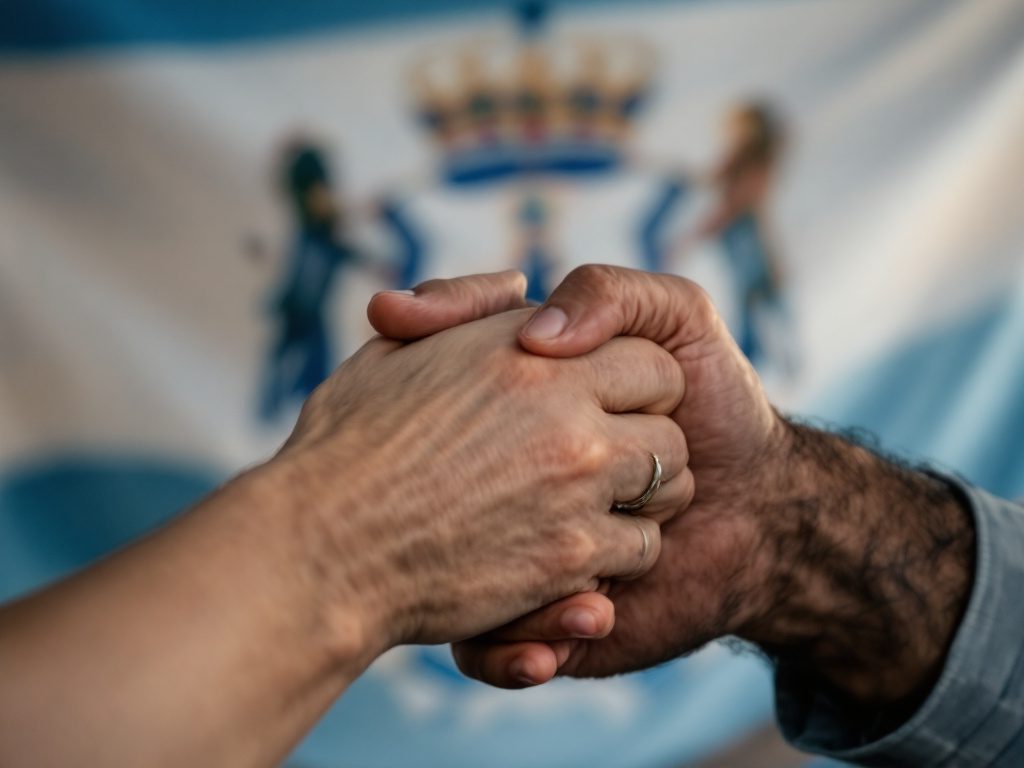Diplomacy on the Clock: Trump’s Visit as Catalyst or Cover?
Ahead of U.S. President Donald Trump’s anticipated Middle East sojourn, Israel’s top defense officials have declared a fleeting but critical “window of opportunity” for a Gaza hostage agreement. The message—delivered with all the urgency of a ticking clock—underscores a complex blend of hope, desperation, and hard-nosed realpolitik. The stakes could hardly be higher for both Israeli families praying for their loved ones’ release and for the more than two million Palestinians trapped in Gaza’s tightening vise.
Senior Israeli security officials, speaking on condition of anonymity, reportedly see Trump’s presence in the region as a lever to coax Hamas into an accord. According to sources cited by Investing and TV18, the latest Israeli offer would see Hamas release six to eight living hostages as an initial step. Only then would negotiations address thornier questions: the final status of remaining prisoners, Hamas’s surrender, and what—if anything—an end to this devastating war might look like.
Why now? A closer look reveals Palestinian suffering has reached a historic nadir. Local health officials report over 52,000 Palestinians have died since the war erupted, a staggering statistic that dwarfs previous conflicts and only hints at the psychological and infrastructural ruin left in its wake. Days before Trump’s expected arrival, Israeli leaders have signaled that absent a breakthrough, they’ll initiate Operation “Gideon Chariots”—a military expansion that, by their own admission, aims to conquer Gaza and displace still more civilians southward for “security checks.” In truth, the specter of mass displacement looms large over any diplomatic calculus.
The Politics and Pitfalls of Hostage Diplomacy
This latest gambit is hardly without precedent in the turbulent annals of Israeli-Palestinian relations. Yet the context has rarely been so stark. Humanitarian agencies and political observers alike are wary of any arrangement that puts tactical calculations before humanitarian needs. According to the current plan, not only would Israeli forces expand their footprint in Gaza, but civilians would be ordered south of the Morag Corridor, a narrow escape route offering the promise of security checks and humanitarian aid. Major aid organizations—the likes of Médecins Sans Frontières and the International Rescue Committee—have already rejected Israel’s proposed aid delivery mechanisms, pointing out that bypassing Hamas does little to resolve bottlenecks and only increases the risk for desperate civilians.
The challenge, according to Harvard’s Middle Eastern politics scholar Sara Roy, is that “any hostilities that merely reshuffle suffering rather than address root causes only breeds more extremism and loss of hope.” Real negotiation, she argues, must grapple not just with the captives above ground, but with the captive populations left in ruins below. The security cabinet’s openly approved plan has stoked international concern, particularly given the unresolved fate of those displaced by previous operations, who now number in the hundreds of thousands.
“What message are we sending when humanitarian principles—long the fragile lifeline for Gaza’s besieged—are openly debated at a strategy table rather than enshrined as a baseline?”
Trump’s own legacy on the Israeli-Palestinian conflict remains deeply controversial. His tenure saw unprecedented moves like relocating the U.S. Embassy to Jerusalem and cutting aid to Palestinian refugees. Now, Trump’s mere proximity is being wielded as a bargaining chip—part diplomatic opening, part silent threat that absent a deal, the iron fist of Operation Gideon Chariots will be brought down. The fact that Israel is “eyeing” the former president’s visit, as reported by multiple outlets, rather than simply planning around it, betrays an uncomfortable willingness to play geopolitical chicken, with Gazan lives in the balance.
Realpolitik, Responsibility, and the Road Not Taken
Political brinkmanship rarely comes without casualties. Past moments of “leverage”—from Ehud Barak’s withdrawal of troops to the risky Oslo-era prisoner swaps—remind us that pressure tactics too often spiral into cycles of retribution. While Israeli officials now cite the softening of Qatari obstruction as reason for cautious optimism, the larger picture remains stubbornly bleak. The decoupling of humanitarian aid from Hamas control, while theoretically clean, ignores the messiness of supply distribution in a lawless war zone—and international NGOs are right to highlight the ethical minefield this creates.
Israeli civil society is hardly unified behind government plans for all-out assault or mass displacement. According to a June 2024 Pew Research study, only 39% of Israeli Jews support indefinite military escalation, while a narrow majority favor negotiations leading to phased hostage releases. Ordinary Israelis—the very people most invested in hostage returns—find themselves caught between their fear for loved ones and the gnawing knowledge that another humanitarian catastrophe may only further poison the goal of long-term security.
For Palestinian families, the high-level talks and Western headlines are painfully abstract. Each “window of opportunity” brings more waiting and uncertainty—more children uprooted, more clinics in rubble, while basic food and water remain out of reach. The region’s autocratic status quo, propped up by record U.S. arms sales and a divided international community, offers little hope. If Trump’s visit is to matter, it must catalyze not only short-term deals but also push both sides toward genuine reckoning with justice and dignity for all.
If this moment of brinkmanship only spawns another round of displacement, or another lopsided exchange that leaves grievances unaddressed, history will not judge either side kindly. Progressive values demand more—not just for Israelis and Palestinians, but for anyone who believes that dignity is stronger than fear. True statesmanship recognizes not just the tactical calculus, but the transformative potential of empathy, accountability, and a politics that sees both hostage and host as equally human.

